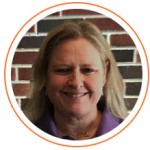Comparison for the Bioanalysis of Biotherapeutic Modalities including “Generic” or Universal Non-clinical MAb Assays
There has been an increasing focus on large molecule therapeutics and pharmaceutical companies have increasingly aligned their development pipelines in that direction. This has resulted in more biological therapeutics coming to market. Last year, in 2020, 15 of the 53 new approved drugs were large molecules.
Historically, bioanalytical support for large molecule development has utilized ligand binding (LBA) technologies. LBA has been the platform of choice for pharmacokinetic, pharmacodynamic and anti-drug antibody analyses, relying on the quality of reagents to help provide sensitive and selective assays.
However, focusing only on one technology can significantly hinder the bioanalytical strategy needed for today’s biologics. The improvement in mass spectrometric technology and growing focus on quantitation of large molecules using liquid chromatography with tandem mass spectrometry (LC-MS/MS) provides an ideal complement to the more established ligand-binding approaches.
We have long exploited the ability to deliver sensitive & specific assays for small molecules by taking advantage of an analyte’s chemical properties. Optimization of extraction, chromatography and mass spectrometric parameters make it possible to determine low concentrations of analytes in the presence of other matrix components. Combining the principles of ligand binding for target analyte enrichment with LC-MS/MS provides an alternative platform for quantitation of large molecules. The addition of an enzymatic digestion to produce a range of characteristic peptides provides surrogates that are more compatible with the mass range of many quantitative MS instruments.
LC-MS/MS provides significant advantages to quantitate large molecules. Hybrid mass spectrometry only requires 1 reagent for enrichment and this reagent does not need to be extremely selective. The detection and selectivity is provided by the mass spectrometer on the back end. It can readily differentiate the target molecule from potential interferences and can furthermore, differentiate similar analytes with simple sequence changes.
Judicial selection of the surrogate peptides gives the ability to monitor specific parts of the molecule which can be useful where there are stability concerns. The MS assay can also be more easily multiplexed. Monitoring different peptides may also result in enhanced sensitivity.
KCAS is a strong advocate of assessing the relative merits of available technologies to answer a project’s needs and using that decision to drive project support. In the past, our ligand binding team provided the majority of our large molecule bioanalysis support. However, more recently, the power and selectivity of LC-MS/MS in large molecule bioanalysis is moving this technology into the mainstream for many PK and biomarker needs.
Register for this webinar to hear experts discuss the evolving role of LC-MS/MS in the bioanalysis of large molecule therapeutics and biomarkers, specifically where we see hybrid LCMS emerging as a front runner in generic/universal assays, as well as specific assays. We will discuss how we consider/decide which technology to pursue (LBA vs LCMS). We will also present case studies highlighting both.
Speakers

John Perkins, Senior Scientific Advisor, KCAS Bioanalytical and Biomarker Services
John R. Perkins is the Senior Scientific Advisor with a focus on LC/MS technologies at KCAS. Previously, he was at Q2Solutions and legacy companies for over 24 years working in quantitative LC/MS, principally with small molecules. His primary focus was on validation and sample analysis processes as well as managing customer relationships in Ithaca NY. More recently he was responsible for the bioanalytical lab in Oss, The Netherlands.
John received his Ph.D. in Supercritical Fluid Chromatography/Mass Spectrometry from University of Wales, College of Cardiff, UK. He did postdoctoral research on nanoscale separation techniques with mass spectrometry at NIEHS in Research Triangle Park. He earned his Bachelors degree in Chemistry from University of Reading, UK and a Masters degree in Advanced Analytical Chemistry from University of Bristol, UK.

Dawn Dufield, Senior Director, Biopharmaceutical LC-MS/MS Services, KCAS Bioanalytical and Biomarker Services
Dawn R. Dufield is the Senior Director of Biopharmaceuticals (LC-MS/MS) Services at KCAS. Previously she had been with Pfizer and legacy companies for over 20 years working in the quantitative LC-MS/MS field. She was one of the early pioneers of using immunoaffinity combined with LC-MS/MS to offer additional selectivity which is now commonly referred to as Hybrid LCMS. She currently is a member of the AAPS Mass Spec Protein Bioanalysis Committee (MSPBC) and an active member of the American Society for Mass Spectrometry (ASMS). She has numerous publications and presentations in her field and recently contributed to a white paper on recommendations for validation of LCMS based bioanalytical methods for protein biotherapeutics.
Dawn received her Ph.D. in Bioanalytical Chemistry (Honors) from the University of Kansas in Lawrence, K. She earned her bachelor’s degree in Chemistry, (Computer minor) from Southwest Missouri State University in Springfield, MO.

Dominic Warrino, PhD, Senior Scientific Advisor, KCAS Bioanalytical and Biomarker Services
Dominic Warrino, PhD, is a Senior Scientific Advisor. His role is to serve as scientific and technical advisor for both clients and internal teams for development, validation, and application of bioanalytical, immunogenicity, and biomarker methods for large molecule therapeutics. Dominic joined the company in 2013 and brought with him expertise in a full range of bioanalytical techniques including ECL, ELISA, RIA, Flow Cytometry, ELISpot, cell-based assays and Luminex. He has 20 years of experience developing and validating immunological assays for biotechnology and pharmaceutical companies. He most recently spent several years in the Biopharma Services department at Viracor-IBT (formally IBT), and previously also worked for Cytogen (formally Cellcor), Eligix, and Streck Laboratories developing novel compounds for treatment of various cancers. Dominic has worked on over 100 large molecule compounds developing and validating PK, PD, ADA, and Biomarker assays in support of pre-clinical to phase IV testing.
Who Should Attend?
- Pharma/Biopharma
- CEO
- Directors
- Managers
What You Will Learn
- Evolving role of LC-MS/MS in the bioanalysis of large molecule therapeutics and biomarkers
- How we consider/decide which technology to pursue (LBA vs LCMS)
- Advantages of LC-MS/MS to quantitate large molecules
- A review of case studies highlighting use of both technologies
Xtalks Partner
KCAS
With over four decades of providing bioanalytical services to pharma and biotech industry, KCAS knows we have the leadership, business model, strategy, depth of experience, staff development plan, capacity forecast system, proactive resource acquisition, and the prioritization process that makes us a viable partner for your discovery needs.
You Must Login To Register for this Free Webinar
Already have an account? LOGIN HERE. If you don’t have an account you need to create a free account.
Create Account




